Discover the Women of the Hall
These are the Inductees of the National Women’s Hall of Fame. Select any of the women to discover their stories and learn how they have influenced other women and this country.
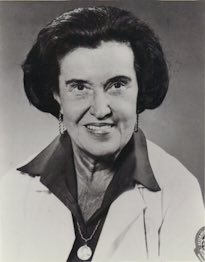 Rosalyn S. Yalow
Science
1921
New York
1993
Rosalyn S. Yalow
Science
1921
New York
1993

Rosalyn S. Yalow
First American woman trained in the U.S. to win the Nobel Prize for Medicine. Known for pioneering the use of radioisotopes to analyze physiological systems, Yalow made possible very detailed analysis of blood chemistry, saving lives and allowing for proper doses of medication.
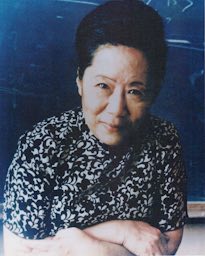 Chien-Shiung Wu
Science
1912
China
1998
Chien-Shiung Wu
Science
1912
China
1998

Chien-Shiung Wu
Nuclear physicist whose pioneering work altered modern physical theory and changed the accepted view of the structure of the universe.
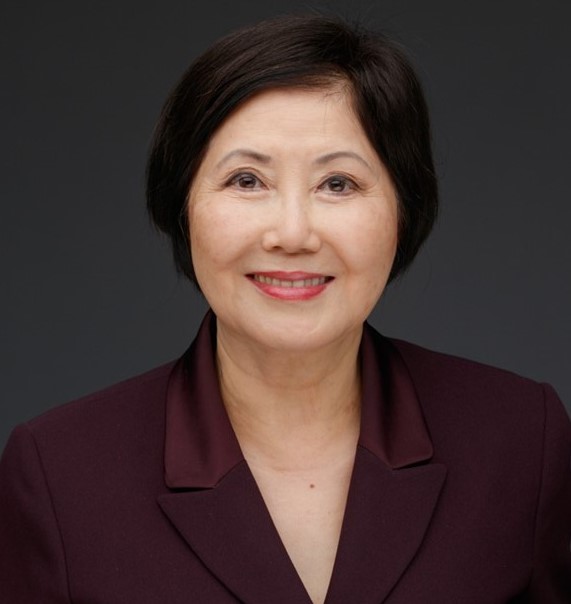 Flossie Wong-Staal
Science
1947
2019
Flossie Wong-Staal
Science
1947
2019

Flossie Wong-Staal
A world-renowned virologist and molecular biologist, Dr. Flossie Wong-Staal and her team of scientists at the U.S. National Cancer Institute were the first to molecularly clone HIV and to elucidate the complex structure of its genome. This accomplishment was instrumental in proving HIV to be the cause of AIDS, and in the subsequent development of diagnostic and therapeutic approaches for the disease.
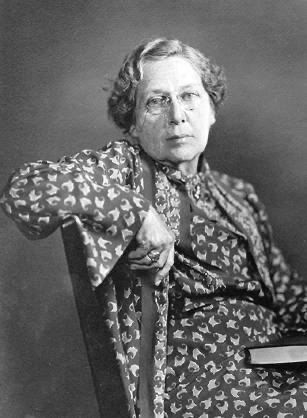 Anna Wessels Williams
Science
1863
New Jersey
2024
Anna Wessels Williams
Science
1863
New Jersey
2024

Anna Wessels Williams
Dr. Anna Wessels Williams was a pioneer in the field of immunology. She earned her medical degree from the Women’s Medical College in New York before joining the nation’s first municipal diagnostic laboratory at the New York City Department of Health.
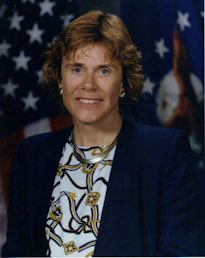 Sheila E. Widnall
Education, Government, Science
1938
Washington
2003
Sheila E. Widnall
Education, Government, Science
1938
Washington
2003

Sheila E. Widnall
Appointed Secretary of the Air Force in 1993 by President Clinton, Widnall became the first woman to hold the position. A world-renowned scientist, she holds three patents in airflow technology. As a current member of MIT faculty, she is internationally known for her work in fluid dynamics, specifically in the areas of aircraft turbulence and the spiraling air flows called vortices created by helicopters.
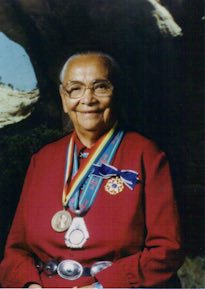 Annie Dodge Wauneka
Science
1910
Arizona
2000
Annie Dodge Wauneka
Science
1910
Arizona
2000

Annie Dodge Wauneka
First woman elected to the Tribal Council, she became determined to lead the fight against tuberculosis among the Navajo. She wrote a dictionary to translate English words for modern medical techniques into Navajo, and hosted a radio broadcast in the Navajo language to explain how modern medicine could help in better care for pregnant women and new babies and other family health problems.
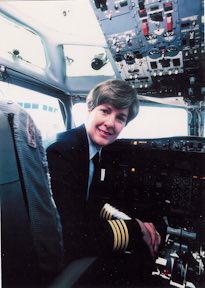 Emily Howell Warner
Science
1939
Colorado
2001
Emily Howell Warner
Science
1939
Colorado
2001

Emily Howell Warner
In 1973, Emily Warner became the first American female commercial airline pilot when Frontier Airlines broke the barrier against hiring women pilots. She later became the nation’s first woman airline captain, also at Frontier Airlines.
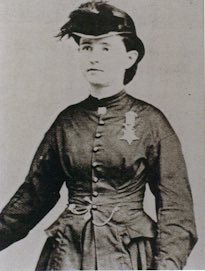 Mary Edwards Walker
Philanthropy, Science
1832
New York
2000
Mary Edwards Walker
Philanthropy, Science
1832
New York
2000

Mary Edwards Walker
First female surgeon in the U.S. Army, she continually crossed the Confederate lines to treat civilians. After being taken prisoner in 1864 and imprisoned in Richmond, she was awarded the Congressional Medal of Honor, the first woman to receive this award. In 1917, her medal, along with 910 others, was taken away when Congress revised the standards to include only “actual combat with the enemy.” She refused to return the medal, wore it until her death, and it was finally awarded to her posthumously.
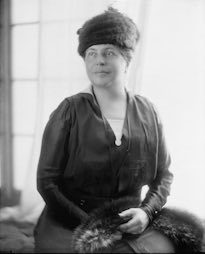 Lillian Wald
Science
1867
Ohio
1993
Lillian Wald
Science
1867
Ohio
1993

Lillian Wald
Nurse who organized the public health nursing service and the Henry Street Settlement in New York City to meet the needs of the urban poor. Wald created public health nursing services for many groups, and established the Public Health Nurses, known today as Visiting Nurse Service.
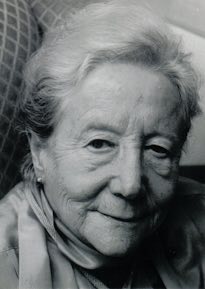 Florence Wald
Science
1916
New York
1998
Florence Wald
Science
1916
New York
1998

Florence Wald
Former dean of the Yale School of Nursing and founder of the Hospice movement in America, for which she was awarded the honorary Doctorate of Medical Sciences by Yale University in 1995. As a nurse, she went to Europe to study Hospice from the ground up.
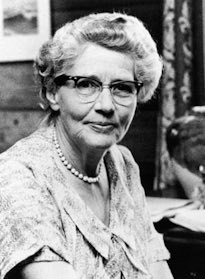 Helen Brooke Taussig
Science
1898
Massachusetts
1973
Helen Brooke Taussig
Science
1898
Massachusetts
1973

Helen Brooke Taussig
As Chief of the heart clinic at Johns Hopkins School of Medicine, she developed a pioneering operation in 1944 which solved the often fatal “blue baby” (children born with an anatomical heart defect) problem, saving countless infants.
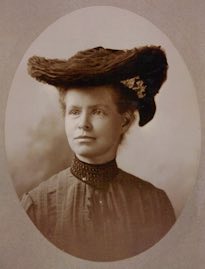 Nettie Stevens
Science
1861
Vermont
1994
Nettie Stevens
Science
1861
Vermont
1994

Nettie Stevens
Research biologist who identified that the “X” and “Y” chromosomes determined the sex of humans, ending scientific debate as to whether sex was determined by heredity or other factors. Stevens was a biology professor at Bryn Mawr College throughout her career.
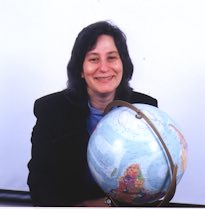 Susan Solomon
Science
1956
Illinois
2009
Susan Solomon
Science
1956
Illinois
2009

Susan Solomon
An internationally recognized leader in the field of atmospheric science, Susan Solomon pioneered the theory explaining how and why the ozone hole occurs in Antarctica, and obtained some of the first chemical measurements that established man-made chlorofluorocarbons (CFCs) as its cause. Solomon is the recipient of numerous awards, including the 1999 National Medal of Science and the Asahi Foundation of Japan’s Blue Planet Prize in 2004. From 2002-2008, Solomon served as the co-chair of the Intergovernmental Panel on Climate Change (IPCC), which shared the Nobel Peace Prize with Albert Gore, Jr. in 2007. Solomon’s current research as a senior scientist with the National Oceanic Atmospheric Administration focuses on climate change, ozone depletion and the links between the two.
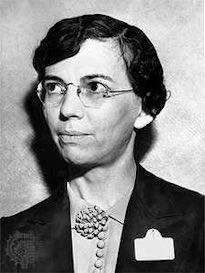 Florence B. Seibert
Science
1897
1990
Florence B. Seibert
Science
1897
1990

Florence B. Seibert
Scientist who made it possible to test for tuberculosis and who pioneered safe intravenous therapy. Siebert also devoted many years to cancer research.
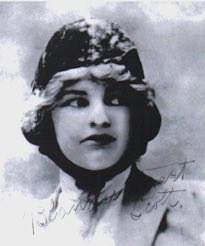 Blanche Stuart Scott
Science
1889
New York
2005
Blanche Stuart Scott
Science
1889
New York
2005

Blanche Stuart Scott
Born in Rochester, New York, Scott was a pioneering aviatrix, becoming the first American woman to take a solo hop into the air, although her flight is not regarded as official. In 1910, she became one of the first woman to drive an automobile coast to coast in her car – the ‚”Lady Overland”. Scott was also the first and only woman to take flying lessons from Glenn Curtiss, later flying with the Curtiss Exhibition Team and earning the nickname ‚”Tomboy of the Air”.
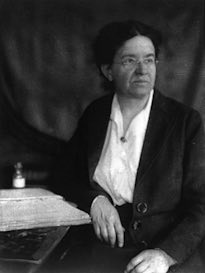 Florence Sabin
Science
1871
Colorado
1973
Florence Sabin
Science
1871
Colorado
1973

Florence Sabin
First woman graduate of the Johns Hopkins School of Medicine and the first woman to teach there. A talented anatomist and researcher, Sabin performed pioneering work in embryology, the lymphatic system and tuberculosis.
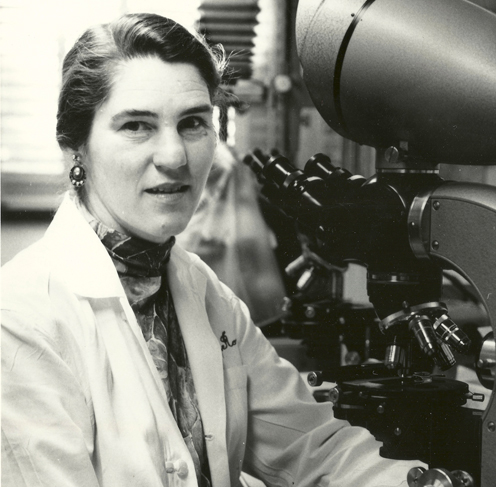 Janet D. Rowley
Science
1925
New York
2017
Janet D. Rowley
Science
1925
New York
2017

Janet D. Rowley
A geneticist whose research established that cancer is a genetic disease. Her discovery of chromosomal exchanges revolutionized cancer research, diagnosis and treatment. Her research led directly to the development of the cancer drug imatinib, one of the most effective targeted cancer therapies to date, leading to 90% of patients with certain forms of leukemia being “cured” where previously life expectancy had been three to five years.
 Sally Ride
Science
1951
California
1988
Sally Ride
Science
1951
California
1988

Sally Ride
First American woman astronaut (1983), when she rode aboard the Challenger into space. A scientist, Ride served as the Director of the California Space Institute at the University of California, San Diego.
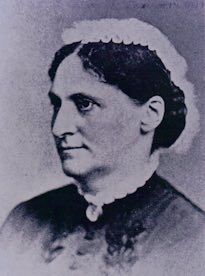 Linda Richards
Science
1841
1994
Linda Richards
Science
1841
1994

Linda Richards
Received the first diploma awarded by the nation’s first school of nursing. Richards dedicated her career to creating professional nurses training schools nationwide to improve both patient care and nurses’ skills.
 Ellen Swallow Richards
Science
1842
1993
Ellen Swallow Richards
Science
1842
1993

Ellen Swallow Richards
The nation’s first professional woman chemist, an important figure in opening careers in science to women. By applying scientific principles to domestic life, Richards became a leader in the new disciplines of sanitary engineering, nutrition and home economics.
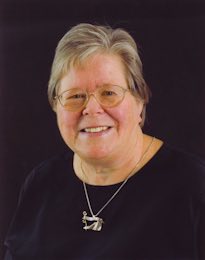 Judith L. Pipher
Education, Science
1940
Canada
2007
Judith L. Pipher
Education, Science
1940
Canada
2007

Judith L. Pipher
The first female to pursue infrared and submillimieter astronomy into ultra sensitive light detection of celestial bodies, Dr. Judith Pipher is a highly regarded infrared astronomer. As a professor with the University of Rochester for 31 years, she founded a group of observational infrared astronomers who took the first telescopic infrared pictures of starburst galaxies. Dr. Pipher was also instrumental in designing aspects of the NASA Spitzer Space Telescope, launched in 2003.
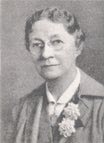 Mary Engle Pennington
Science
1872
Tennessee
2002
Mary Engle Pennington
Science
1872
Tennessee
2002

Mary Engle Pennington
Chemist and refrigeration expert Mary Engle Pennington saved thousands of lives by creating national standards for milk and dairy inspection and improved the safety and convenience of refrigerated and frozen foods. She was also instrumental in developing safe and sanitary methods for the storage and handling of poultry, fish, and eggs, contributing techniques that solved humidity control problems, insulation and ventilation issues.
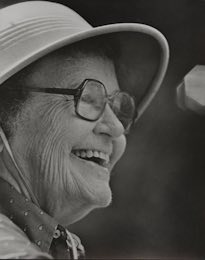 Ruth Patrick
Science
1907
Kansas
2009
Ruth Patrick
Science
1907
Kansas
2009

Ruth Patrick
A pioneer in the field of limnology – the scientific study of the life and phenomena of fresh water, especially lakes and ponds – Ruth Patrick provided methods needed to monitor water pollution and understand its effects. Patrick is credited, along with Rachel Carson, as being largely responsible for ushering in the current worldwide concerns with ecology. She was the first female elected chair of the board of the Academy of Natural Sciences and received the National Medal of Science in 1996.
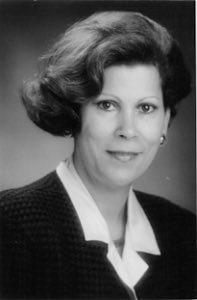 Antonia Novello
Government, Science
1944
Puerto Rico
1994
Antonia Novello
Government, Science
1944
Puerto Rico
1994

Antonia Novello
First woman and first Hispanic to be named Surgeon General of the United States. A pediatrician, Novello has used her position to alleviate suffering worldwide, especially for women and children.
